- Home
- H. Beam Piper
Time and Time Again Page 2
Time and Time Again Read online
Page 2
the house and upstairs.
The Luger hung on the wall over his father's bed. Getting it down, hedismounted it, working with rapid precision. He used the blade of hispocketknife to unlock the endpiece of the breechblock, slipping out thefiring pin and buttoning it into his shirt pocket. Then he reassembledthe harmless pistol, and filled the clip with 9-millimeter cartridgesfrom the bureau drawer.
There was an extension telephone beside the bed. Finding Gutchall'saddress in the directory, he lifted the telephone, and stretched hishandkerchief over the mouthpiece. Then he dialed Police Headquarters.
"This is Blake Hartley," he lied, deepening his voice and copying hisfather's tone. "Frank Gutchall, who lives at...take this down"--he gaveGutchall's address--"has just borrowed a pistol from me, ostensibly toshoot a dog. He has no dog. He intends shooting his wife. Don't argueabout how I know; there isn't time. Just take it for granted that I do.I disabled the pistol--took out the firing pin--but if he finds out whatI did, he may get some other weapon. He's on his way home, but he's onfoot. If you hurry, you may get a man there before he arrives, and grabhim before he finds out the pistol won't shoot."
"O. K., Mr. Hartley. We'll take care of it. Thanks."
"And I wish you'd get my pistol back, as soon as you can. It's somethingI brought home from the other War, and I shouldn't like to lose it."
"We'll take care of that, too. Thank you, Mr. Hartley."
He hung up, and carried the Luger and the loaded clip down to the porch.
* * * * *
"Look, Mr. Gutchall; here's how it works," he said, showing it to thevisitor. Then he slapped in the clip and yanked up on the toggle loadingthe chamber. "It's ready to shoot, now; this is the safety." He pushedit on. "When you're ready to shoot, just shove it forward and up, andthen pull the trigger. You have to pull the trigger each time; it'sloaded for eight shots. And be sure to put the safety back when you'rethrough shooting."
"Did you load the chamber?" Blake Hartley demanded.
"Sure. It's on safe, now."
"Let me see." His father took the pistol, being careful to keep hisfinger out of the trigger guard, and looked at it. "Yes, that's allright." He repeated the instructions Allan had given, stressing theimportance of putting the safety on after using. "Understand how itworks, now?" he asked.
"Yes, I understand how it works. Thank you, Mr. Hartley. Thank you, too,young man."
Gutchall put the Luger in his hip pocket, made sure it wouldn't fallout, and took his departure.
"You shouldn't have loaded it," Hartley _pere_ reproved, when he wasgone.
Allan sighed. This was it; the masquerade was over.
"I had to, to keep you from fooling with it," he said. "I didn't wantyou finding out that I'd taken out the firing pin."
"You what?"
"Gutchall didn't want that gun to shoot a dog. He has no dog. He meantto shoot his wife with it. He's a religious maniac; sees visions, hearsvoices, receives revelations, talks with the Holy Ghost. The Holy Ghostprobably put him up to this caper. I'll submit that any man who holdslong conversations with the Deity isn't to be trusted with a gun, andneither is any man who lies about why he wants one. And while I was atit, I called the police, on the upstairs phone. I had to use your name;I deepened my voice and talked through a handkerchief."
"You--" Blake Hartley jumped as though bee-stung. "Why did you have todo that?"
"You know why. I couldn't have told them, 'This is little Allan Hartley,just thirteen years old; please, Mr. Policeman, go and arrest FrankGutchall before he goes root-toot-toot at his wife with my pappa'sLuger.' That would have gone over big, now, wouldn't it?"
"And suppose he really wants to shoot a dog; what sort of a mess will Ibe in?"
"No mess at all. If I'm wrong--which I'm not--I'll take the thump forit, myself. It'll pass for a dumb kid trick, and nothing'll be done. Butif I'm right, you'll have to front for me. They'll keep your name out ofit, but they'd give me a lot of cheap boy-hero publicity, which I don'twant." He picked up his pencil again. "We should have the completereturns in about twenty minutes."
* * * * *
That was a ten-minute under-estimate, and it was another quarter-hourbefore the detective-sergeant who returned the Luger had finishedcongratulating Blake Hartley and giving him the thanks of theDepartment. After he had gone, the lawyer picked up the Luger, withdrewthe clip, and ejected the round in the chamber.
"Well," he told his son, "you were right. You saved that woman's life."He looked at the automatic, and then handed it across the table. "Now,let's see you put that firing pin back."
Allan Hartley dismantled the weapon, inserted the missing part, and putit together again, then snapped it experimentally and returned it to hisfather. Blake Hartley looked at it again, and laid it on the table.
"Now, son, suppose we have a little talk," he said softly.
"But I explained everything." Allan objected innocently.
"You did not," his father retorted. "Yesterday you'd never have thoughtof a trick like this; why, you wouldn't even have known how to take thispistol apart. And at dinner, I caught you using language and expressingideas that were entirely outside anything you'd ever known before. Now,I want to know--and I mean this literally."
Allan chuckled. "I hope you're not toying with the rather medievalnotion of obsession," he said.
Blake Hartley started. Something very like that must have been flittingthrough his mind. He opened his mouth to say something, then closed itabruptly.
"The trouble is, I'm not sure you aren't right," his son continued. "Yousay you find me--changed. When did you first notice a difference?"
"Last night, you were still my little boy. This morning--" Blake Hartleywas talking more to himself than to Allan. "I don't know. You wereunusually silent at breakfast. And come to think of it, there wassomething ... something strange ... about you when I saw you in thehall, upstairs.... Allan!" he burst out, vehemently. "What has happenedto you?"
Allan Hartley felt a twinge of pain. What his father was going throughwas almost what he, himself, had endured, in the first few minutes afterwaking.
"I wish I could be sure, myself, Dad," he said. "You see, when I woke,this morning, I hadn't the least recollection of anything I'd doneyesterday. August 4, 1945, that is," he specified. "I was positivelyconvinced that I was a man of forty-three, and my last memory was oflying on a stretcher, injured by a bomb explosion. And I was equallyconvinced that this had happened in 1975."
"Huh?" His father straightened. "Did you say nineteen _seventy_-five?"He thought for a moment. "That's right; in 1975, you will beforty-three. A bomb, you say?"
Allan nodded. "During the siege of Buffalo, in the Third World War," hesaid, "I was a captain in G5--Scientific Warfare, General Staff. There'dbeen a transpolar air invasion of Canada, and I'd been sent to the frontto check on service failures of a new lubricating oil for combatequipment. A week after I got there, Ottawa fell, and the retreatstarted. We made a stand at Buffalo, and that was where I copped it. Iremember being picked up, and getting a narcotic injection. The nextthing I knew, I was in bed, upstairs, and it was 1945 again, and I wasback in my own little thirteen-year-old body."
"Oh, Allan, you just had a nightmare to end nightmares!" his fatherassured him, laughing a trifle too heartily. "That's all!"
"That was one of the first things I thought of. I had to reject it; itjust wouldn't fit the facts. Look; a normal dream is part of thedreamer's own physical brain, isn't it? Well, here is a part about twothousand per cent greater than the whole from which it was taken. Whichis absurd."
"You mean all this Battle of Buffalo stuff? That's easy. All the radiocommentators have been harping on the horrors of World War III, and youcouldn't have avoided hearing some of it. You just have an undigestedchunk of H. V. Kaltenborn raising hell in your subconscious."
"It wasn't just World War III; it was everything. My four years at highschool, and my four years at Penn State, and my
seven years as areporter on the Philadelphia Record. And my novels: '_Children of theMist_,' '_Rose of Death_,' '_Conqueror's Road_.' They were no kid stuff.Why, yesterday I'd never even have thought of some of the ideas I usedin my detective stories, that I published under a _nom-de-plume_. And myhobby, chemistry; I was pretty good at that. Patented a

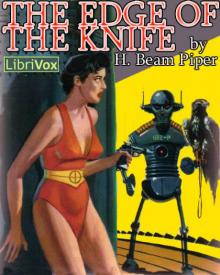 The Edge of the Knife
The Edge of the Knife Genesis
Genesis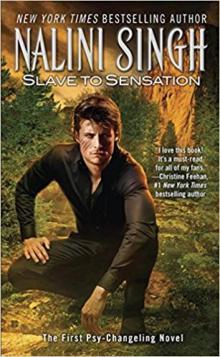 A Slave is a Slave
A Slave is a Slave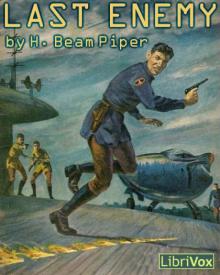 Last Enemy
Last Enemy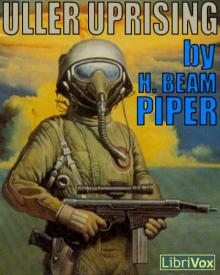 Uller Uprising
Uller Uprising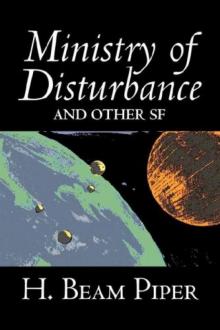 Ministry of Disturbance
Ministry of Disturbance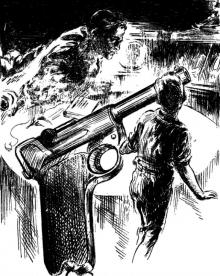 Time and Time Again
Time and Time Again The Mercenaries
The Mercenaries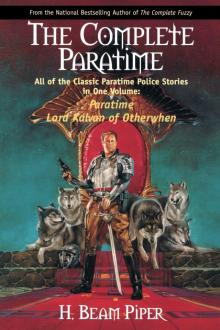 Police Operation
Police Operation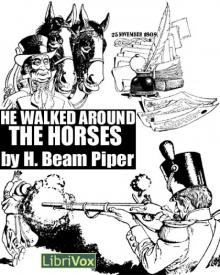 He Walked Around the Horses
He Walked Around the Horses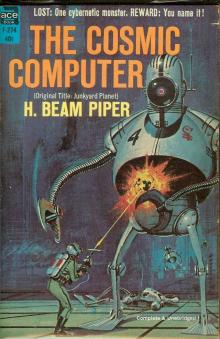 Time Crime
Time Crime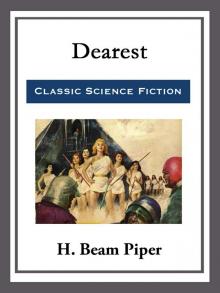 Dearest
Dearest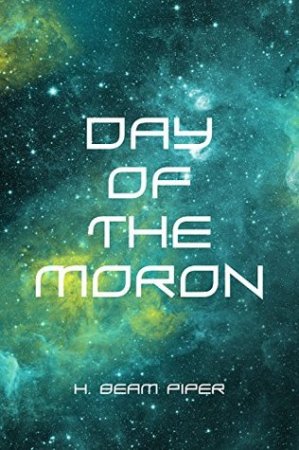 Day of the Moron
Day of the Moron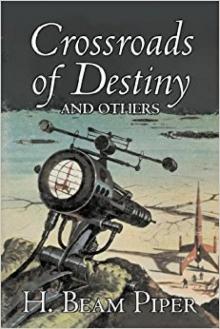 Crossroads of Destiny
Crossroads of Destiny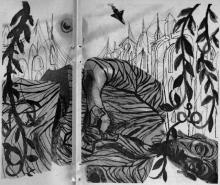 Graveyard of Dreams
Graveyard of Dreams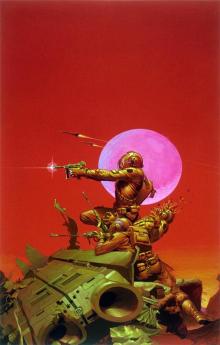 The Cosmic Computer
The Cosmic Computer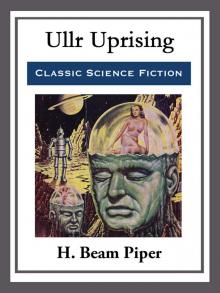 Ullr Uprising
Ullr Uprising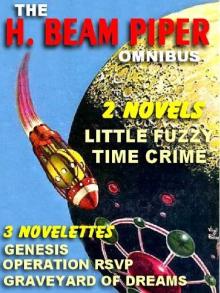 Operation R.S.V.P.
Operation R.S.V.P.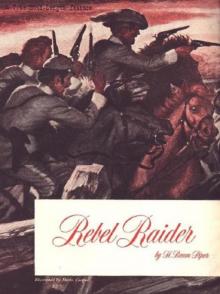 Rebel Raider
Rebel Raider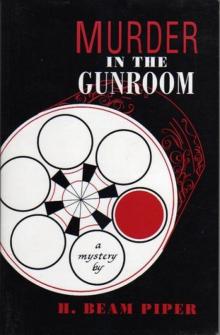 Murder in the Gunroom
Murder in the Gunroom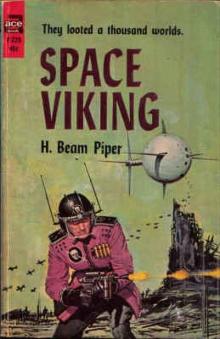 Space Viking
Space Viking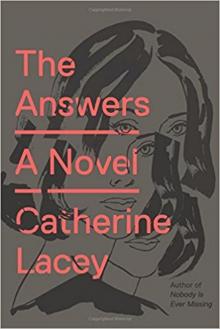 The Answer
The Answer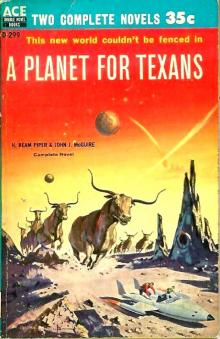 A Planet for Texans (aka Lone Star Planet)
A Planet for Texans (aka Lone Star Planet)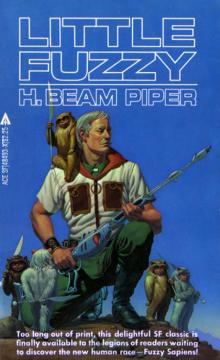 Little Fuzzy
Little Fuzzy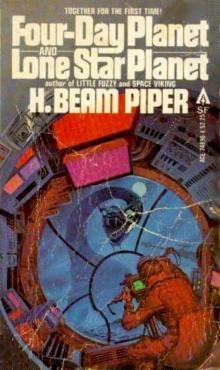 Four-Day Planet
Four-Day Planet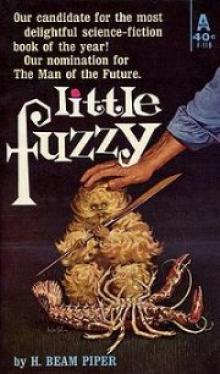 Little Fuzzy f-1
Little Fuzzy f-1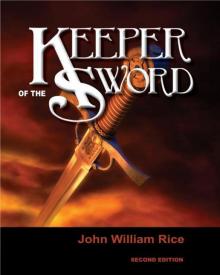 Keeper
Keeper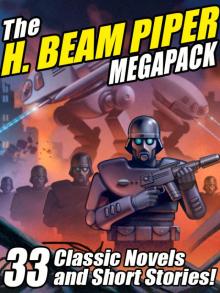 The H. Beam Piper Megapack
The H. Beam Piper Megapack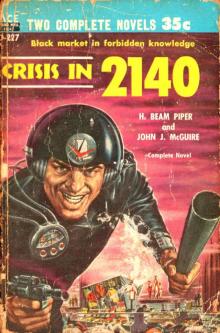 H. Beam Piper
H. Beam Piper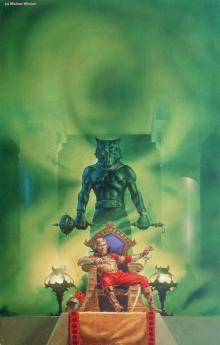 Lord Kalvan of Otherwhen
Lord Kalvan of Otherwhen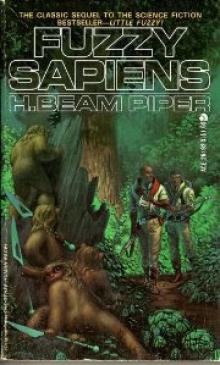 Fuzzy Sapiens f-2
Fuzzy Sapiens f-2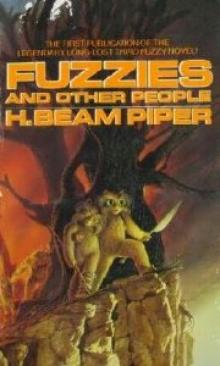 Fuzzies and Other People f-3
Fuzzies and Other People f-3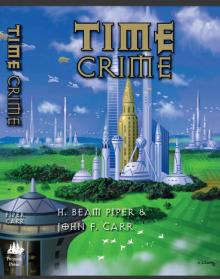 TIME PRIME
TIME PRIME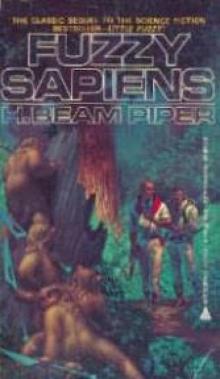 Fuzzy Sapiens
Fuzzy Sapiens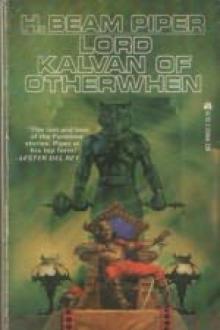 Lord Kalvan of Otherwhen k-1
Lord Kalvan of Otherwhen k-1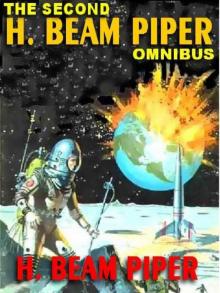 The Second H. Beam Piper Omnibus
The Second H. Beam Piper Omnibus